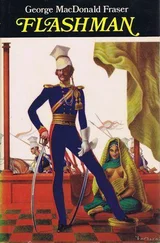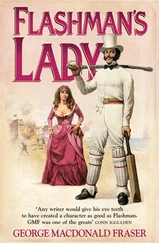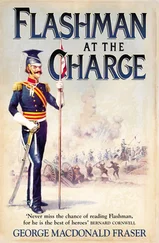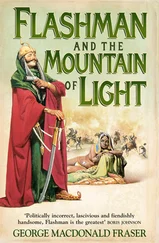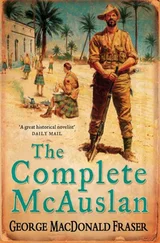“Very well. May I take you to supper, Miss …?”
“Delys. Miss Priscilla Delys, of the Folies Satire,” and she dropped him a little mock curtsey. “Enchanted to accept your gracious invitation, Mr …?”
“Franklin. Mark J. Franklin.” He found himself smiling down at her.
“Why have all Americans got a middle initial? You know, like Hiram J. Crinkle? Mind you, I’m one to talk – it’s not really Delys – it’s Sidebotham, but when you sing numbers like ‘Boiled Beef and Carrots’” you need all the style you can get. Priscilla’s real, though – Pip, for short. Come on, let’s get a taxi.”
Without any clear idea of how he got there, Mr Franklin found himself on the main street again, surveying the post-theatre bedlam in the vain hope of spotting an empty cab. But Miss Delys was equal to the occasion; she stepped daintily to the edge of the pavement, removed a glove, inserted two fingers in her mouth, and let out a piercing whistle, followed by a shrill cry of “Oi, Clarence!” A taxi swung into the kerb as though by magic, Miss Delys smiled right and left as heads turned, some obviously in recognition, said “Monico’s, Ginger,” to the driver, and seated herself regally, followed by a diffident but grateful Mr Franklin.
He was still collecting his thoughts as they sped towards the restaurant, which was just as well, since Pip Delys talked non-stop. He learned, in short order, of her career in the chorus of Brewster’s Millions, of her brief sojourn at the Gaiety, and of her emergence as third principal at the Folies Satire, where she hoped for even greater things, “’cos Jenny Slater, who’s second, is sure to go into panto somewhere this season, as principal boy – she’s got the thighs for it, you see, like sides of bacon – an’ Elsie Chappell can’t last much longer – stuck-up cow, just ’cos she started in the chorus at the Savoy – well, I mean, that was back before the Flood, practically, not that she hasn’t got a good voice, ’cos she has, but she’s getting on – must be thirty if she’s a day, and dances like an ostrich.” Miss Delys giggled happily, and Mr Franklin took the opportunity to wonder if thirty was so old, after all.
“Well, I’m twenty-three,” said Pip seriously. “Twenty-three, professionally, that is. I’m twenty, really, but I’ve been in the business five years, and you daren’t tell ’em you’re just fifteen, you see. Anyway, I’ve always been plump enough, but I’m small, that’s the trouble – you’ve got to be tall, really, to be a principal – but I make up for it with bounce and bubble – that’s what Mr Edwardes used to say. Here we are – the Monico. All right, Ginger –” she tapped the driver on the shoulder – “double or quits.”
The driver, who was elderly and had no vestige of hair, ginger or otherwise, sighed heavily and glanced at Mr Franklin, who was producing change. Pip snatched a coin from him, spun it and clapped it deftly on her gloved wrist. “’Eads,” said the driver hopefully, and she crowed with delight. “Too bad, Ginge – it’s tails. Better luck next time,” and she skipped out onto the stained velvet carpet which covered the Monico pavement, leaving Mr Franklin to present a tip which more than covered the lost fare.
Within, Monico’s was a glaze of crystal and gilt, with a small covey of flunkeys greeting Miss Delys by name, removing her wrap, and bowing obsequiously to Mr Franklin. It was at this point he recalled a name, supplied by Samson, and felt himself obliged to mention it.
“I’d like to speak to Maurice,” he told the nearest minion, a small Italian who looked puzzled and repeated: “Morris, sir? Ah – Morrees, but of course.” Pip raised a questioning brow.
“What’s that, then? I thought you were a stranger. Never mind, Renzo – table for two on the balcony, for champagne, and a supper-room afterwards.” To Mr Franklin she went on archly: “How d’you know the head-waiter’s name, straight from the backwoods? I can see you’ll need an eye kept on you – flowers at the stage door, too. Well, well! You’re a dark horse.”
He explained, as they were conducted to their table by the balcony rail, that the name had been learned accidentally, but Pip was too occupied to listen; she was making her entrance, keeping an eye cocked and a profile turned for theatrical managers, calling and waving brightly to acquaintances, keeping up a running fire of comment while the champagne was poured, and pausing only to take an appraising sip.
“Not bad for a tanner a glass,” was her verdict, and Mr Franklin, who had tasted French champagne for the first time on the Mauretania, would not have presumed to argue. Privately, he thought it an overrated drink, but he was content to sip while his companion prattled, and watch the well-dressed throng in the dining room below.
“Thin house tonight,” was how Pip described it. “’Course, it’s early yet; there’ll be more later.” Mr Franklin remarked that so far as he could see, every table was full, and Pip clicked impatiently.
“I mean real people, silly – celebrities. They’re nobodies –” and she dismissed the assembly with an airy wave. “Let’s see, though – there’s one or two – see, over there, that dark lady with the pearls, beside the chap with whiskers? Mrs Pat Campbell, that is – you’ve heard of her. They reckon she’s a great actress – in all them grisly plays by Henry Gibson, or whatever his name is. She’s got a new play now, at Her Majesty’s, but I heard tell it was a stinker. False Gods, I ask you!” Pip rolled her eyes and pronounced in a strangled contralto: “‘Desmond, our ways must part – forevah! Yah touch defiles me!’ Honest, that’s the sort of thing they put on – well, how can that run against revues and variety and niggers singing in the bioscope?”
She drained her glass, and twitched at the sleeve of a passing waiter. “Menus, Dodger – I’m peckish.” She suddenly put her forearms on the table and leaned across towards him, smiling impishly, but with a hint of apology. “I’m sorry – I’m dead common, aren’t I? Chivvying waiters and taxi-drivers, shouting out and making an exhibition of myself. Aren’t you ashamed? Sorry you came? But it’s the way I’m made – and being in the show business, you see. I’m just a Cockney sparrow – well, you can tell by the accent. And I squint, too.”
Mr Franklin was spared a gallant denial by the arrival of the menus, imposing documents of several pages in ornate script, most of it in French. Pip seized on hers with satisfaction.
“Oysters! Say a couple of dozen between us? I love oysters – prob’ly comes of having a father in the fish business.”
“He keeps a shop?” said Mr Franklin, idly scanning his menu.
“He had a barrow. Jellied eels and whelks – but you won’t know about those, I guess. He’s retired now. Rheumatism – and rum, too, if you ask me. Poor old Dad. Here –” she suddenly lowered her menu and regarded him seriously “– you all right for a fiver, are you?”
“I beg your pardon?”
“Have you got five quid? – let’s see, that’s twenty-five dollars, your money. ’cos that’s what this’ll cost you, including our private room. Well, we could eat out here, but nobody does who’s anybody in the theatre – and then we could get away for three quid, if you’re stretched.”
“If your standing in the theatre is at stake,” said Mr Franklin gravely, “I think I could manage five pounds without embarrassment.”
“You’re sure?” The pretty face under the blonde tresses was earnest, and Mr Franklin found himself liking this girl a great deal. “’cos if you’re not – we can go dutch, you know. That’s fifty-fifty. Oh, stop grinning like that – “ Mr Franklin realized that he had been smiling at her with pure pleasure. “Just for that, I’ll have the consommé, the salmon stuffed with shrimps in champagne sauce – let’s see, the veal cutlets, the pheasant – and we’ll see about pudding after. That’ll take care of your fiver, all right …”
Читать дальше

